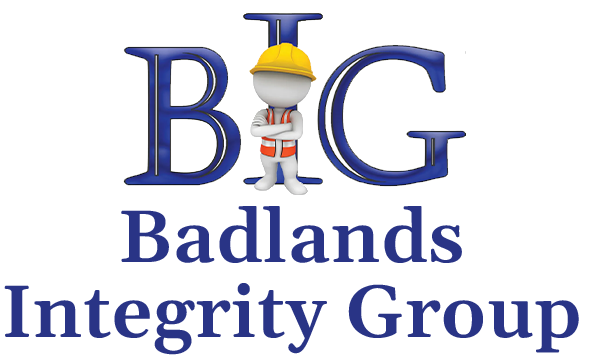Williston Resident's Guide to DOT Compliance Services
DOT compliance services help transportation companies and drivers meet federal safety requirements set by the Department of Transportation. These services include maintaining driver qualification files, conducting required drug and alcohol testing, completing vehicle inspections, and keeping accurate logs of driver hours. Working with a qualified DOT compliance provider ensures your operation stays compliant with regulations while avoiding costly violations that can shut down your business.
What DOT Compliance Requirements Apply to Your Business?
DOT compliance requirements depend on the type of commercial vehicles you operate and whether you cross state lines. If you operate vehicles over 10,000 pounds, transport hazardous materials, or carry more than 15 passengers, you likely need DOT compliance.
The Federal Motor Carrier Safety Administration sets specific rules for commercial drivers and carriers. These include maintaining complete driver qualification files with employment history, driving records, and medical certifications. You must also implement a drug and alcohol testing program that includes pre-employment screening, random testing throughout the year, post-accident testing, and reasonable suspicion testing when needed.
Hours of service regulations limit how long drivers can work before taking required rest breaks. You need systems to track and document these hours accurately. Vehicle maintenance records must show regular inspections and repairs. Many businesses find it challenging to keep up with all these requirements while running their daily operations. That's where DOT compliance services in Williston become valuable for maintaining proper documentation and avoiding penalties.
How Do You Choose a DOT Compliance Provider?
Look for providers with specific experience in your industry and vehicle type. A company that works primarily with trucking fleets may not understand the unique needs of passenger carriers or specialized haulers.
Ask about their technology systems for tracking driver files, testing schedules, and vehicle maintenance. Good providers use software that sends automatic reminders when certifications need renewal or when it's time for random drug tests. This proactive approach helps you avoid compliance gaps that could lead to violations during roadside inspections or audits.
Consider the provider's testing capabilities. Do they offer on-site drug and alcohol testing at your location? Can they handle Department of Transportation physicals and medical certifications? Some providers offer comprehensive services that cover all your compliance needs in one place, while others may only handle certain aspects. Choose a provider whose services match your specific requirements and can grow with your business as your fleet expands.
What Happens During a DOT Compliance Audit?
DOT audits examine your company's compliance with federal motor carrier safety regulations. An auditor will review your driver qualification files, drug and alcohol testing program, vehicle maintenance records, and hours of service logs.
The auditor checks whether driver files are complete and current. They verify that all required documents are present, including applications, driving records from previous employers, annual reviews of driving records, and valid medical certificates. Missing or incomplete files result in violations that can affect your safety rating.
Your drug and alcohol testing program receives careful scrutiny. The auditor verifies you're conducting the correct percentage of random tests, documenting all required test types, and using approved testing facilities. They also review how you handle positive test results and return-to-duty protocols. Having professional drug testing services in Williston that maintain proper documentation helps you pass these audits successfully.
DOT Compliance Trends in the Williston Market
Williston's oil and gas industry creates unique DOT compliance demands. The energy sector relies heavily on commercial transportation for equipment, materials, and personnel. This means many local businesses that might not traditionally need DOT compliance now find themselves subject to these regulations.
Recent enforcement trends show increased focus on drug and alcohol testing programs. Auditors pay special attention to whether companies conduct the required percentage of random tests and properly document all testing. The opioid crisis has made this area of compliance even more critical, with regulators watching closely to ensure drivers are fit for duty.
Electronic logging devices have changed how companies track hours of service. While these devices simplify some aspects of compliance, they also create new challenges. Drivers and dispatchers need training on proper use, and companies must have backup systems when devices malfunction. The transition to electronic logs has revealed many hours of service violations that paper logs might have hidden, leading to more violations during roadside inspections.
Building a Strong Compliance Program
Successful DOT compliance goes beyond just meeting minimum requirements. The best programs create a culture of safety where compliance becomes part of your standard operating procedures.
Start by training your entire team on DOT requirements. Drivers need to understand hours of service rules, pre-trip inspection requirements, and when they must report for drug and alcohol testing. Dispatchers and managers need training on how their decisions affect compliance. When everyone understands the rules and why they matter, your operation runs more smoothly and safely.
Regular internal audits help you catch problems before regulators do. Schedule quarterly reviews of a sample of driver files, maintenance records, and testing documentation. This proactive approach lets you fix issues while they're still small and manageable. Many violations happen not because companies intentionally ignore rules, but because paperwork gets overlooked in the daily rush of operations.
Keep detailed records of everything. If something isn't documented, it didn't happen in the eyes of a DOT auditor. Save driver applications, maintain complete testing records, document all vehicle inspections and repairs, and keep copies of training materials. Good record-keeping protects your business during audits and provides evidence of your commitment to safety and compliance.
For expert DOT compliance support that keeps your operation running smoothly, contact Badlands Integrity Group at (701) 483-6559. Our team helps Williston transportation companies navigate complex regulations with confidence.
